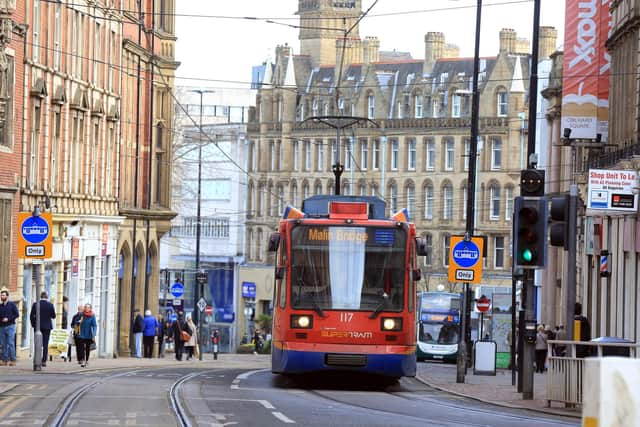Stagecoach revenues hit £773.2m despite widening losses for Sheffield Supertram network
The firm, which is also responsible for multiple Yorkshire bus routes, saw its revenue rise to £773.2 million for the six months ending 28 October, up from £669.6 million for the same period the year prior.
Operating profits for the firm, however, fell from £43.3 million to £40.5 million as the company saw increased losses in its departments which run the Sheffield Supertram network and multiple London buses.
Advertisement
Hide AdAdvertisement
Hide AdLosses for the company’s rail department, which runs the Supertram network, rose from £0.5 million to £1.5 million. Revenue for the period, however, rose from £7.1 million to £8.7 million.


It was announced late last year that the South Yorkshire Supertram network would be brought back into public ownership as of March 2024, when Stagecoach’s contract expires.
Referencing the Supertram network, Stagecoach’s trading update said that “continued strong recovery in passenger demand” and “good cost control” had enabled it to moderate the underlying trading losses.
It added: “We are proud of the service we have delivered over our period of operation and will continue to work hard to deliver a safe, high quality and professional service to our customers, meet our obligation and ensure a smooth transition to the new operator.”
Advertisement
Hide AdAdvertisement
Hide AdThe company said that its London busses department had been hit by issues including staff shortages and road works across the capital, as losses in the sector rose from £1.5 million to £5.8 million.
In a statement to the London Stock Exchange, the firm said: “Similar to the experience of other operators, trading in our London bus operations has been challenging with the losses incurred in the period reflecting the impact of upward wage pressure and elevated levels of staff turnover and staff shortages.
“The impact of lost mileage has resulted in significant contractual penalties and lost quality incentive income. Road works and traffic congestion are a continuing challenge for operators in the London market, which is adversely affecting service delivery.”
It added that it expects profitability to improve as it addresses labour market challenges and benefits from “lagged” inflationary increases in contract revenue.
Advertisement
Hide AdAdvertisement
Hide AdThe company said that it had seen 5.3 per cent growth in passenger demand across its regional bus services. It noted that continued “supportive” government policy through the £2 bus fare cap in England had helped to push this demand forwards.
Revenue from the firm’s regional bus operations also grew by 15.1 per cent to £584.7 million.
Stagecoach also recruited and trained more than 2.300 new bus drivers during the period.
Net debt for the company increased from £241.1 million as of 29 April 2023 to £301.5 million on 28 October 2023, reflecting net capital expenditure of £62.3 million in the period. The company said this was to support the transition of its bus fleet to zero emission vehicles
Comment Guidelines
National World encourages reader discussion on our stories. User feedback, insights and back-and-forth exchanges add a rich layer of context to reporting. Please review our Community Guidelines before commenting.